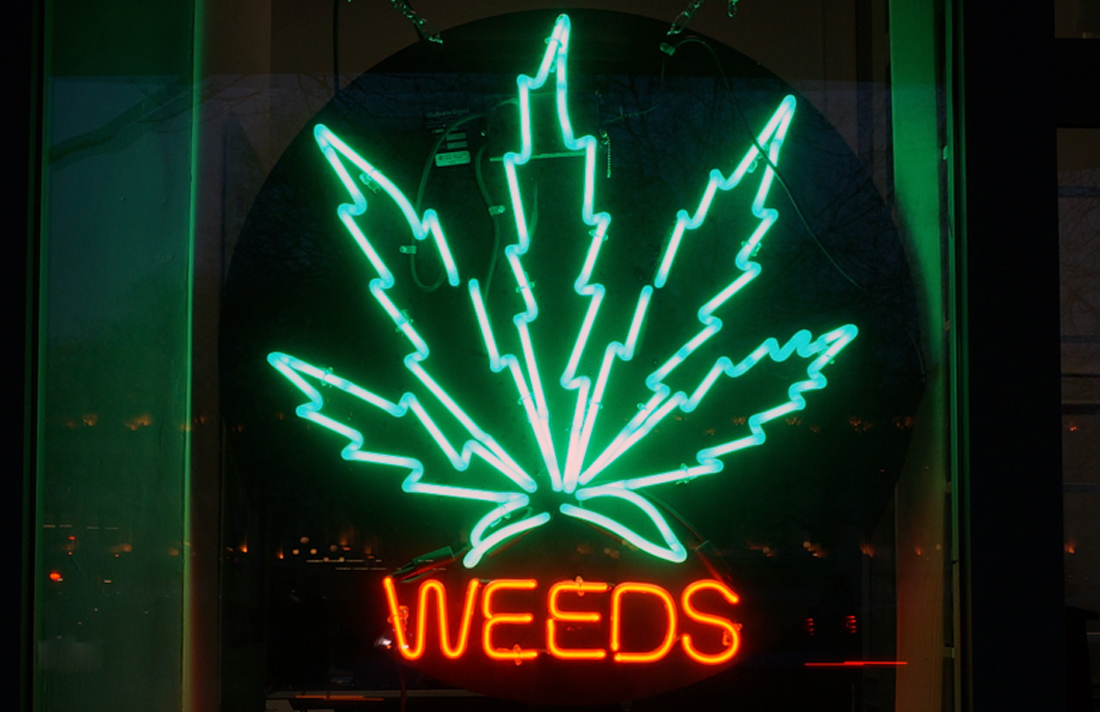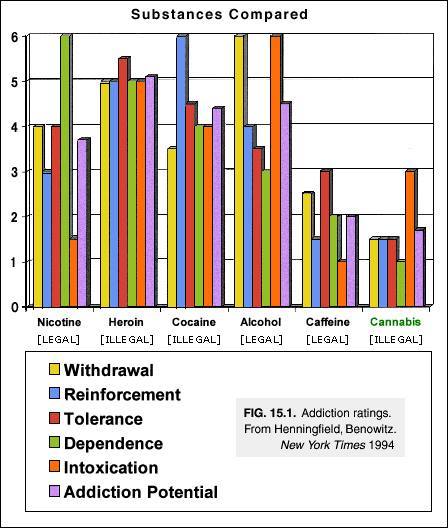Impairment of Memory: A Response to the City of Vancouver’s Proposed Medical Marijuana Regulations

CANNABIS CULTURE – If we settle for irrational rules now, we’ll settle for irrational rules later.
The City of Vancouver is relying on two out-dated, discredited reports to justify treating cannabis more like hard drugs such as pharma and alcohol, rather than the soft drug that it is.
These reports – the City will have us believe – are enough justification to do the following:
The city will levy a $30,000 annual administration fee, followed by business licenses that will also cost up to $5,000 per year, depending on square footage. Each shop will also have to reapply annually under the city’s official development plan bylaws as a conditional use. The businesses can’t be owned by companies, only individuals, and they and their employees will have to undergo annual criminal record checks. The city will also control location; dispensaries can’t be within 300 metres of schools, community centres and each other. And in an effort to rid certain neighbourhoods of established shops, the city will ban them from side streets. They also won’t be permitted in the Granville entertainment district or in the Downtown Eastside other than along Main and Hastings Streets.
http://www.vancouversun.com/health/Vancouver+become+Canada+first+city+regulate+marijuana+shops/10994936/story.html
By the Vancouver Sun‘s estimate in the above link, this will shut down at least 22 dispensaries, including (arguably) three of the most professional establishments, the BC Compassion Club Society on Commercial Drive, Eden on Davie and the Medical Cannabis Dispensary on Hastings.
My initial reaction is that if they can push us around with this BS, then there’s no limit to how bad it could get … if we accept these horrible reports as the basis for regulation, we will accept anything, and deserve our eventual demise.
Aside from the obvious problems with attempting to use recreational US regulations as a model for medicinal Canadian regulations (what if someone under 18 has life-threatening epilepsy, or anorexia, or depression?), the following paragraph is the main justification for the proposed regs from the City of Vancouver for “Medical Marijuana Related Uses”:
Marijuana-related uses have also generated some concerns: 1. Studies on marijuana use have linked its use to health harms such as impairment of memory (in adolescents) and psychomotor performance; schizophrenia; cancer of mouth, jaw, tongue and lung (in younger people); fetotoxicity; and leukemia in children 11 12.”
11 The human toxicity of marijuana. The Medical Journal of Australia [1992, 156(7):495-497]. 12 Marijuana use and risk of lung cancer: a 40-year cohort study. Cancer Causes & Control. October 2013, Volume 24, Issue 10, pp 1811-1820
http://former.vancouver.ca/ctyclerk/cclerk/20150428/documents/rr1.pdf
The two reports the City of Vancouver are relying on to justify discriminatory regulations for cannabis businesses (page 5) are a joke. It’s as if they spent five minutes Googling “marijuana is bad” and took the top two items without bothering to read them, or anything else on the subject. It’s a rush job to be sure. It’s a big funny joke, except this joke will lead to some people losing their jobs, others having to increase the cost of their cannabis or cannabis-related products and services and still others left vulnerable to arrest or dying in a drug raid gone bad, so I’m not laughing.
Report #1:
First there’s this report from 23 years ago:
Med J Aust. 1992 Apr 6;156(7):495-7.
The human toxicity of marijuana.
Nahas G1, Latour C.
http://www.ncbi.nlm.nih.gov/pubmed/1313532
It was written by Gabriel Nahas, who is the most discredited academic in the entire field. This report was immediately identified as intrinsically flawed by Nahas’s own peers, two years later:
The human toxicity of marijuana: a critique of a review by Nahas and Latour
McDonald J. Christie & Gregory B. Chester
Department of Pharmacology, University of Sydney, New South Wales, Australia
http://www.ncbi.nlm.nih.gov/pubmed/16818409
Full report:
http://www.ukcia.org/research/nahas.php
If you don’t know who Nahas is, this is a quick crash course on the subject:
As the world became more sophisticated and the level of evidence required to fool people became elevated, the front-line soldiers in the anti-pot army switched from being politicians, cops, filmmakers or reporters to being academics. One of those academics was Gabriel Nahas, a man who even the New England Journal of Medicine had to admit was responsible for “psychopharmacological McCarthyism that compels him to use half-truths, innuendo and unverifiable assertions.”(130)
Nahas’s work became the back-bone of the modern-day cannabis prohibitionist movement:
Those papers, and the ideas they brought forth, are at the heart of the anti-marijuana movement today,” the pharmacologist John P. Morgan told me in 1993. “Nahas generated what was clearly a morally based counter-reform movement, but he did a very efficient job of saying that he was actually conducting a toxicological, scientific assessment. (131)
Apparently Nahas got some of his ideas from a Greek doctor named Stringaris who had been Joseph Goebbel’s drug advisor. Goebbels worked closely with Harry Anslinger back in the 1930’s to come up with reasons to prohibit cannabis in both Germany and the USA. (132)
http://www.cannabisculture.com/content/2014/11/11/Does-Cannabis-Inherently-Harm-Young-Peoples-Developing-Minds
The City has selected the most discredited anti-cannabis researcher in history to justify the discrimination it wish to foist onto the scapegoat-du-jour. This shows just how little effort the discriminators have put into trying to understand the issue. It’s as if they don’t really want to know the truth. “Let’s ignore the 2 million dollar Senate Report of 2002 and go with this report from 1992; it says what we want to believe is true.”
The second report wasn’t much better.
Report #2:
The second report proves nothing, does not address the lack of evidence of marijuana-only smokers going on to get lung cancer, and makes an unfounded assumption in it’s conclusion.
Cancer Causes & ControlAn International Journal of Studies of Cancer in Human Populations
© Springer Science+Business Media Dordrecht 2013
10.1007/s10552-013-0259-0
Original paper: Marijuana use and risk of lung cancer: a 40-year cohort study
Russell C. Callaghan1, 2, 3 , Peter Allebeck4 and Anna Sidorchuk4, 5
Conclusions
Our primary finding, requiring further replication, does provide initial longitudinal evidence that cannabis use might elevate the risk of lung cancer. In light of the widespread global use of marijuana, especially among adolescents and young adults, our study provides important findings for informing the risk–benefit calculus of marijuana smoking in medical, public-health, and drug-policy settings.”
http://link.springer.com/article/10.1007/s10552-013-0259-0/fulltext.html
More recent reports have disputed this assumption:
Results from our pooled analyses provide little evidence for an increased risk of lung cancer among habitual or long-term cannabis smokers, although the possibility of potential adverse effect for heavy consumption cannot be excluded.
– Cannabis smoking and lung cancer risk: Pooled analysis in the International Lung Cancer Consortium. Zhang, L. R., Morgenstern, H., Greenland, S., et al. (2015), Int. J. Cancer, 136, 894–903. doi: 10.1002/ijc.29036.
This recent refutation is echoed in many previous reputable sources:
There are no epidemiological or aggregate clinical data suggesting that marijuana-only smokers develop lung cancer.
https://www.erowid.org/plants/cannabis/cannabis_myth4.shtml
Smoking Marijuana Does Not Cause Lung Cancer – New research shows here seems to be something in pot that actually undermines cancer, instead of causing it. — and the media are doing their best to ignore it.
http://www.alternet.org/story/142271/smoking_marijuana_does_not_cause_lung_cancer
I attended the 1st National Clinical Conference on Medical Marijuana in Iowa in 1998. Arguably the most learned man on the subject of the effects of smoke on the lungs is named Donald Tashkin, Professor of Medicine, Division of Pulmonary & Critical Care, at UCLA. He spoke for almost an hour at the Conference, showing slides of smoke-browned lungs. He showed how marijuana smoke seems to push pollutants towards the outer lining of the lungs.
His presentation did not portray marijuana smoke as harmless, but there was no solid evidence of disease associated with the browning of the lungs’ outer lining. Donald Tashkin has conducted the most extensive research involving the largest number of long-term marijuana-only smokers, as well as multi-drug smokers–marijuana, tobacco, cocaine, and onther substances, for several decades. His critique of marijuana smoke was completely non-committal. (Considering the government is his largest source of funding, there is little doubt why his lecture at the first medical cannabis conference was short and unsupportive.)
When Dr. Tashkin finished his speech, he did not wait to answer questions. He grabbed his materials and bolted for the door. I raced after him and stopped him on the steps outside the conference hall. I showed him the passages I had written about his research in The New Prescription. I stood there and watched him read everything I had written about his work. He agreed that my synopsis was correct. Then I asked him the $64,000 question. I said, “Do you know of any cases of marijuana-only smokers who had lung cancer?” He said “Yes, there is one.” Then he smiled, explaining, “He was sixteen years old.” We both smiled, knowing a teenager could not possibly have sufficient exposure to marijuana smoke to cause lung cancer–his cancer was clearly due to some other cause.
http://www.greenleafclinics.com/medical-marijuana-and-lung-cancer.html
Results from our pooled analyses provide little evidence for an increased risk of lung cancer among habitual or long-term cannabis smokers, although the possibility of potential adverse effect for heavy consumption cannot be excluded.
– Cannabis smoking and lung cancer risk: Pooled analysis in the International Lung Cancer Consortium
Li Rita Zhang1,
Hal Morgenstern2,3,4,
Sander Greenland5,
Shen-Chih Chang5,
Philip Lazarus6,
M. Dawn Teare7,
Penella J. Woll7,
Irene Orlow8,
Brian Cox9,
on behalf of the Cannabis and Respiratory Disease Research Group of New Zealand,
Yonathan Brhane1,
Geoffrey Liu10and
Rayjean J. Hung1,11,*
Article first published online: 30 JUN 2014
International Journal of Cancer
Volume 136, Issue 4, pages 894–903, 15 February, 2015http://onlinelibrary.wiley.com/doi/10.1002/ijc.29036/abstract
Such concerns over lung damage seem ridiculous in a world filled with edibles and vapes. Oh, did I mention that this same municipal government is currently waging a war on vaporization?
http://vancouver.24hrs.ca/2014/01/28/health-authority-calls-for-e-cigarettes-ban
They also want to outlaw edibles in this current round of regulation-introduction.
In a concession to health officials worried about food safety and youth accessing drug-laced cookies, the city will not allow the sale of edible products and oils.
http://www.vancouversun.com/health/Vancouver+become+Canada+first+city+regulate+marijuana+shops/10994936/story.html
The thing to keep in mind is that concerns over cannabis-related lung cancer – like concerns over cannabis-related harm to the developing mind of young people – have been used for decades to justify horrible abuses such as executions, lethal drug raids, the destruction of families, and fines that are big enough to affect the health and safety of poor (actual harms that cause actual problems, not just the “possible harms” they ascribe to cannabis use).
One look at the fraud behind the current “cannabis harms the developing minds of the young” talking-point would convince any open-minded person that our government has zero respect for the truth, zero research skills, zero consideration for the health of their constituents, and 100% consideration for keeping the rich and powerful rich and powerful and the medical economy an exclusive one.
An image featuring data published by the New York Times shows that cannabis’s harms and cost to society are on par with caffeine’s:

If that’s not enough:
In terms of costs per user: tobacco-related health costs are over $800 per user, alcohol-related health costs are much lower at $165 per user, and cannabis-related health costs are the lowest at $20 per user.
http://www.heretohelp.bc.ca/visions/cannabis-vol5/cannabis-tobacco-and-alcohol-use-in-canada
Any way you slice it, the regulatory costs to cannabis retailers should be a fraction of the regulatory costs to alcohol and tobacco dealers. Instead, we are on the verge of the opposite becoming true.
The number of cannabis coffee shops have been cut by two thirds in The Netherlands with similar tactics because the Dutch shop owners did not challenge the irrational stigma of their regulations:
The downside to Dutch Cannabis legislation is that the Dutch government has used parental hysteria as a method to cut down on the number of cafes. No coffee shops are allowed near schools. (177) The Dutch Government pretends that a pot café near a school will automatically result in misuse of Cannabis by children. The Dutch government has shrunk the number of cafes from at least a couple thousand in the mid 1990’s down to just over 700 a decade later. (178)
http://www.cannabisculture.com/content/2011/07/07/Crystal-Clear-Glasses-and-Unbleached-Rollies
How long will we allow our rulers to switch from myth#1 to myth#2 to myth#3 to myth#4 back to myth#1 again before we say, “you’ve been given enough chances to prove cannabis is inherently harmful, and you’ve failed every time. Now it’s time to start looking at the harms caused by prohibition, and treat cannabis like caffeine, herbal medicine and other soft drugs.”
It is up to the dispensary owners of Vancouver to draw the line, find their assertiveness where the Dutch cannabis community failed to, demand that reason and logic prevail over pragmatism and fatal compromise, and collectively, with a loud and steady voice, stand united with each other, refusing to be discriminated against any longer.



